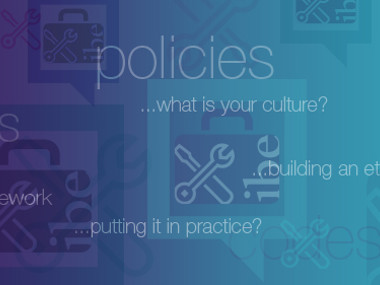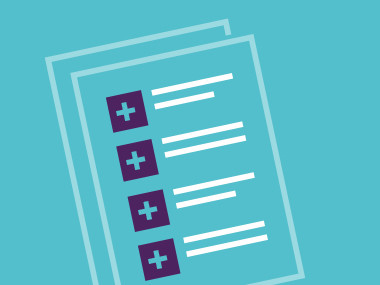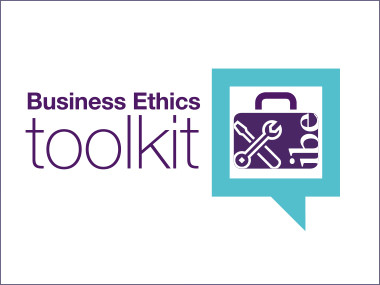Recruit partners and employees
In entering into any new relationship, be it choosing a new supplier or considering a new business partner, quite early on you will probably start asking yourself: ‘can I work with these people?’
This question actually considers whether the values and ways of working of others are sufficiently similar to your own and whether there are common objectives to work towards. If this is not the case, the mismatch is most likely to surface at some stage, producing a negative impact on the success and reputation of your organisation.
How do you assess another organisation's ethical culture?
The need for businesses to analyse ‘ethical compatibility’ as part of cultural fit is integral to doing business ethically. Knowing exactly who your partners and suppliers are can help to protect your organisation from working with individuals who might be less than trustworthy. This is particularly relevant if you do business abroad, especially in countries that are identified as at high risk of corruption (the Department for International Trade provides guidance for SMEs doing business abroad).
You may want to ask a few questions and do a few checks before engaging others to represent you in business dealings. Ethical Due Diligence (EDD) offers a framework for this, providing a systematic review of the values, corporate culture and non-financial issues of a potential business partner to help tease out any risks and deal breakers upfront.
This page suggests some practical steps that you can follow to carry out effective EDD on any third party you plan to work with. You can use these as a basis to map your potential business partners and assess the ethical risk to you.
Choosing new business partners
The issues covered by EDD fall under the broad category of non-financial risk, such as governance, reputation, alignment with ethical values of corporate behaviour and internal controls. This process is particularly useful for those business partners that you consider at high risk in terms of potential ethical lapses.
There are different approaches that you can take to conduct your ethical due diligence on potential business partners, depending on the level of detail that you wish to achieve. This can be difficult for a smaller businesses dealing with a large customer or supplier. However, many large organisations would be only too happy to respond to the request for an interview or a written assessment. In the first instance, speak to your contact at the organisation, but you may also wish to contact the organisation's head of risk and compliance. You will also wish to offer to undertake a similar exercise for the partner organisation.
- DESKTOP RESEARCH. The first useful step is to gather the information that is publicly available about the targeted company, to gauge an external perspective in addition to the interviews and the data provided by the organisation itself. This would include Google searches on the organisation itself, in particular focusing on any media converage that the company has received. Another useful source of information is through social media channels. Try to answer questions such as: does the organisation have a code of ethics? What do they include in their annual report? There are organisations that can help conduct these background checks for you (e.g. Refinitiv - former Thompson Reuters - offers a Risk Management Solutions suite, which includes the World-Check database of Politically Exposed Persons and heightened risk individuals and organisations, which is used around the world to identify and manage financial, regulatory and reputational risk. Other organisations that provide useful services in this area are Maplecroft and Control Risks).
- ASK FOR REFERENCES. Ask the targeted organisation for names of partners they worked with previously and that you could speak to.
- FACE-TO-FACE INTERVIEWS. Usually, the most effective way of conducting EDD is to contact directly a relevant person in the organisation you are looking to work with.
- PHONE OR SKYPE INTERVIEWS. In some cases, depending on the available resources and on geographical location, the interviews can be conducted “at arm’s length”.
- WRITTEN ASSESSMENT. If a face-to-face or virtual interview is not possible, you can send a questionnaire to the potential business partner and ask them to fill it in.
It is important to structure the interview or assessment through a series of questions that encompass all the aspects that you need to analyse to paint a picture of the culture of the organisation. This is an opportunity for you to:
- Review the organisation’s ethical values, standards and related policies
- Determine compatibility with your company’s own code of ethics
- Identify risks and areas where changes might be necessary to ensure a successful partnership.
Your questions will vary slightly depending on the sector you are in, size and characteristics of the organisation with which you wish to do business. This webpage includes a standard questionnaire that you can use as a starting point.
Choosing an intermediary or agent
The definition of intermediary includes agents, distributors, consultants, sales representatives, implementation partners, sales partners and so on. They can be key for the success of your business, especially if you decide to enter into a new foreign market. In some countries, you might be required to have a local agent in order to do business in their territory.
In these cases, it is of paramount importance that the intermediary is someone you can trust and that will not expose your organisation to unnecessary risk. The Banknote Ethics Initiative (BnEI) has produced the following checklist for appointing an intermediary that can be applied to SMEs operating in all sectors.
Choosing a new member of staff
Having your employees committed to ethical standards is as important as engaging with external stakeholders to maintain a strong ethical culture and ensure that the core values are shared and understood. The concept of EDD applies to new recruits as well as potential business partners and therefore it is advisable that you ask some ethics-related questions when you interview candidates for a job.
The purpose of this exercise is to gauge their views on the importance of ethics and whether they would be able to embrace your organisation’s ethical values. Some of the questions that you might want to consider are listed below:
- What does business ethics mean to you?
- Can you give us an example of an ethical dilemma that you had to face in the workplace and how you handled it?
- Have you ever taken a course/received training on business ethics?
- Who would you consult (first) if you were faced with an ethical issue in the workplace?
- If you were asked by your supervisor or colleague to undertake an action you thought was unethical, how would or did you respond?
However, this is also a good point for you to share your core values with potential employees and introduce them to the culture of your organisation. It is an opportunity to give them the chance to ask any questions they might have on it and for you to explain to them how you conduct your business.
What's next?
The answers given to these questionnaires and assessments will help you to form a judgement on the individual or organisation with which you are about to enter into a business relationship with and decide whether they are a ‘good fit’ for your organisation.
It is important to remember that EDD is not a tick box exercise. Documented facts are only a partial guide to a company’s or an individual’s ethical strength. The use of qualitative indicators will be essential. Ascertainable facts need to be supplemented by judgement of how the business is actually run, also known as the “feel” factor.
Some points to remember are:
- Apply ethical due diligence in any situation where company relationships are about to be established and be clear about its purpose. The main objective is to identify issues which could damage the company’s reputation. These will lie mainly in the management of ethical risks.
- Although much Ethical Due Diligence (EDD) work can be carried out using publicly available information, it also requires a deeper understanding of the ethos of the proposed business partner. Specialist firms can carry out this kind of work.
- You might want to include some specific areas that you have identified as potentially at risk, for example governance issues, employment practices, environmental policies, anti-bribery measures, conformity with ethical norms etc. The code of ethics of a business partner might be helpful to understand this. If a business relationship is particularly important or carries a greater risk, you might wish to conduct a more detailed EDD by including examinations of internal work practices, reputation of key staff and management of challenging situations.
- Ethical Due Diligence (EDD) is often viewed as a separate exercise from regular due diligence, as it is not a regulatory requirement. However, many of the issues it covers are increasingly coming under direct regulatory control, e.g. anti-bribery and employment policies. The gap between ethical and regular due diligence is narrowing and, in many areas, the two overlap.
- In addition to new business partners and new hires, you might wish to consider conducting EDD on new products or marketing campaigns. The launch of a new product may require research to identify potential ethical risks.
- If one of your suppliers is involved in unethical practices, this may reflect badly on your organisation and damage your reputation if posted on social media.
- Take a proportionate but realistic approach to EDD processes and focus on third parties that present the highest risk first.




